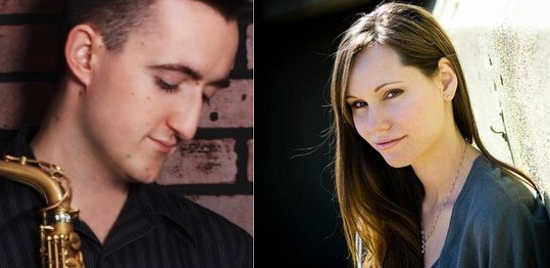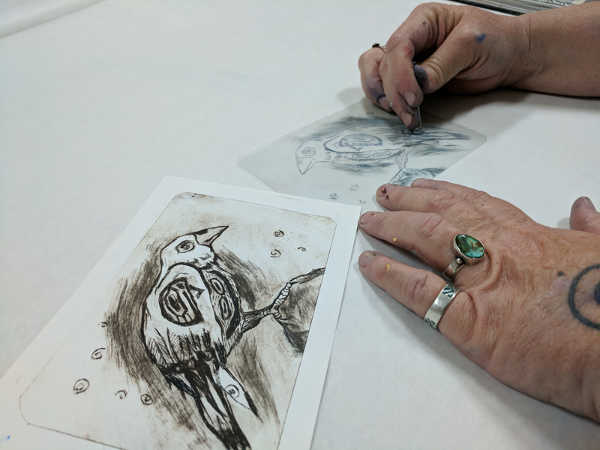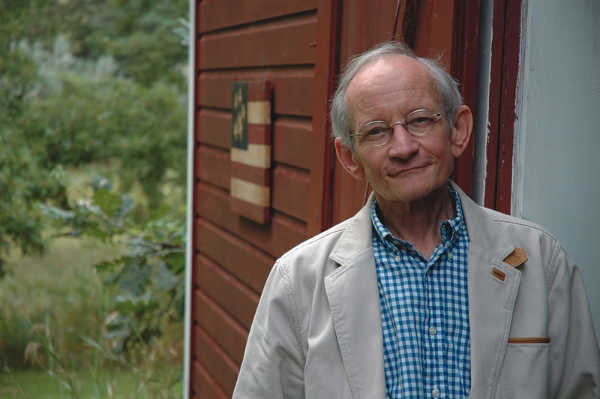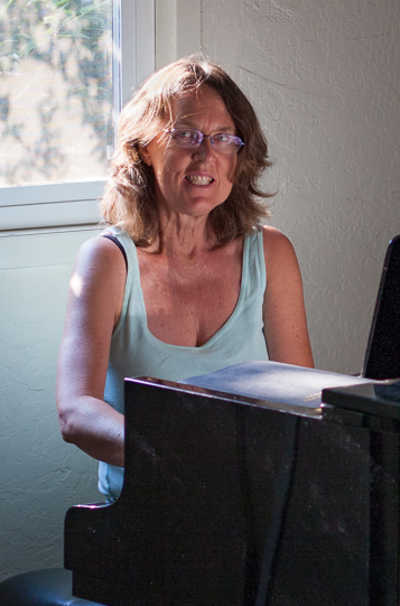- Editor
- Posted On
Friday, 09 May 2025
Arts & Life
- Editor
- Posted On
Rothstein Ensemble to perform Christmas concert Dec. 2

LAKEPORT, Calif. – At 7 p.m. Saturday, Dec. 2, the Rothstein Ensemble opens the Christmas season on stage at the Soper Reese Theatre with a unique concert encompassing the silly, sentimental, sacred and serious.
- Tim Riley
- Posted On
Stylish mystery surrounds ‘Murder On The Orient Express’
MURDER ON THE ORIENT EXPRESS (Rated PG-13)
Though Agatha Christie mystery novels may seem dated today, “Murder on the Orient Express,” published in 1934, remains a beloved and ingenious story about the shocking homicide of a passenger on a luxury train ride.
The story is so familiar that fans of Christie’s work are not really in store for many surprises from director Kenneth Branagh’s updated take on the sleuthing of Belgian detective Hercule Poirot in the new “Murder on the Orient Express.”
In fact, the biggest mystery might be the size of Poirot’s thick, furry mustache (sported by Branagh in his dual role as star and director), which so overwhelms his face that it looks like a ferret is attached to his upper lip.
As for the mustache, it appears that size matters after all, at least for this production. The mustache would seem to deserve its own credit, as the press notes refer to Christie’s view that it should be the most magnificent mustache in all England.
You may find, as I did, that this immense, graying plot of facial hair is something of a distraction to the audience, if not to all the suspects on the train who must wonder if the whiskers possess some magical power.
The story begins with Poirot’s skills called upon at the Wailing Wall in Jerusalem to solve the mystery of a stolen religious artifact where the initial suspects include three clerics representing the Jewish, Christian and Muslim faiths.
Solving the crime, in which the actual perpetrator is not one of the suspected parties, demonstrates that Poirot has excellent deductive talent befitting his reputation that will soon be tested.
Summoned back to London for another urgent case, Poirot takes the Orient Express for what is initially thought to be a restful journey enjoying the comfortable amenities of a luxury train trip from Istanbul to Calais.
For his part, Poirot is an overbearing character who would not be a great traveling companion. His fastidious nature leads to his insistence that his four-minute hard-boiled eggs are cooked and measured to an exact perfection.
Poirot also has a peculiar habit to insist, even of complete strangers, that a man’s necktie should never be out of place.
Of course, his attention to detail is an essential part of his detective toolbox to catch the unwary criminal off-guard.
Aboard the train is swaggering American gangster Edward Ratchett (Johnny Depp), traveling with his assistant (Josh Gad) and butler (Derek Jacobi), who fears for his life and seeks out the help of Poirot.
But who are the other passengers on this train that would pose a deadly threat? Caroline Hubbard (Michelle Pfeiffer) is a rich widow who might be hunting for her next husband, a victim of a different sort.
In contrast, Penelope Cruz’s missionary Pilar Estravados is on a spiritual journey, or so it seems.
While Judi Dench’s Princess Natalia Dragomiroff, an imperious Russian, possesses an air of superior arrogance and contempt for others beneath her.
Even the young Hungarian Count Andrenyi (Sergei Polunin) and his drug-addicted Countess wife (Lucy Boynton), both ballet dancers, are too overly dramatic and passionate to matter as royal counterparts for the Russian princess.
Daisy Ridley’s vivacious British governess Mary Debenham makes an impression, if not for her sharp intelligence and curiosity, then certainly for her porcelain-skin beauty upon which Branagh’s camera lovingly lingers.
Willem Dafoe’s imprint on the proceedings, in the role of Austrian professor Gerhard Hardman, is limited to his noxious political views of the looming war soon to be waged by Nazi Germany.
Others also fare as secondary characters, whether it’s the mysterious Dr. Arbuthnot (Leslie Odom Jr.), who engages the attention of the governess, or the train manager Bouc (Tom Bateman), whose debonair charm endears him to Poirot and almost everybody else.
Conveniently, an avalanche stops the Orient Express dead in its track in the Alps, thereby ensuring that the person responsible for the crime has no way to escape.
In this environment, Poirot has all the time he needs to conduct his investigation.
What it comes down to, quite simply, is that Poirot engages all the train passengers in a series of one-on-one interrogations, eliciting a trail of clues to the killer’s identity even when red herrings are thrown in the mix.
If memory serves, there’s not a whole lot here that adds to the 1974 version of the Sidney Lumet-directed “Murder on the Orient Express,” in which Albert Finney was Poirot and the glamorous Lauren Bacall played the husband-hunting widow.
And yet, though the plot is a bit creaky and the pace a little slow, director Branagh has fashioned a stylish production for this updated “Murder on the Orient Express,” with plenty of dazzling visuals from the period costumes to the opulence of luxury train travel.
But for many, this remake is a journey that didn’t really need to be taken more than four decades later. The 1974 version, a classic whodunit filled with delicious intrigue, would be worth revisiting again.
Tim Riley writes film and television reviews for Lake County News.
- Editor
- Posted On
Middletown Art Center plans day of art and culture Nov. 25

MIDDLETOWN, Calif. – This Saturday, Nov. 25, the Middletown Art Center is offering a full day of art and culture to the community.
- Ted Kooser
- Posted On
American Life in Poetry: Cash Register Sings The Blues

I love poems that delightfully offer voices for otherwise mute things, and I like what the following cash register has to say about her life and times.
This poem is from Maria Nazos' chapbook, “Still Life,” from Dancing Girl Press & Studio.
For the past two years, Maria has been our graduate assistant at American Life in Poetry, during which time she's had a good deal of success with her own poems, including a recent publication in The New Yorker.
Cash Register Sings The Blues
This isn't my dream-job. As a young sheet
of steel and plastic I dreamt of being melted
down into a dancer's pole in Vegas. I wanted
a woman in a headdress glossy as a gossamer
to wrap her lithe limbs around me. I wanted
to be strewn in lights, smell her powdery perfume.
Instead I'm a squat box crouched behind the counter,
noticed only if someone robs me. I'm touched all day,
but never caressed. Listen: somewhere gold tokens
spew from slots. I want to drink space-alien-dyed martinis on black
leather sectional couches. Watch tipsy women with acid-
washed jeans and teased hair dreamily press their faces
against slot machines while people treat currency
carelessly as spit in the wind.
I'm everywhere you look, ubiquitous and ignored.
I'm the container of your dreams that tossed aside my own.
I've kept my clean, sleek lines but you never say a thing.
Feed me, feed me with the only love we know.
American Life in Poetry does not accept unsolicited manuscripts. It is made possible by The Poetry Foundation (www.poetryfoundation.org), publisher of Poetry magazine. It is also supported by the Department of English at the University of Nebraska, Lincoln. Poem copyright ©2016 by Maria Nazos, “Cash Register Sings The Blues,” from Still Life, (Dancing Girl Press & Studio, 2016). Poem reprinted by permission of Maria Nazos and the publisher. Introduction copyright ©2017 by The Poetry Foundation. The introduction’s author, Ted Kooser, served as United States Poet Laureate Consultant in Poetry to the Library of Congress from 2004-2006.
- Editor
- Posted On
Nov. 19 fall concert features accomplished North Coast pianist

LAKEPORT, Calif. – This year’s 40th anniversary of the Lake County Symphony will take place on Sunday, Nov. 19, and will feature a performance by accomplished North Coast pianist, Elizabeth MacDougall.
LCNews
Responsible local journalism on the shores of Clear Lake.
Memberships:
 |
 |
 |
 |
 |
 |

